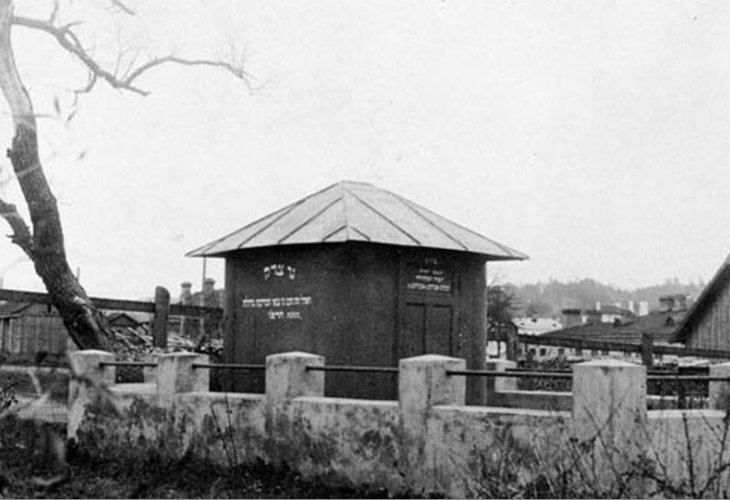The Remarkable Journey of Count Potocki: A Story of Faith and Sacrifice
Abraham ben Abraham, one of the most renowned converts in Jewish history, sanctified Hashem's name publicly and was martyred on this day, the 7th of Sivan.

1. On the second day of Shavuot, the 7th of Sivan, 5509 (May 24, 1749), the righteous convert Abraham ben Abraham was martyred to sanctify Hashem's name. He found his way to Judaism and chose to glorify Hashem with great courage.
2. Abraham ben Abraham, known by his noble title, "Count Potocki," is one of the most famous converts in Jewish history. His name became legendary among the Jews of Poland.
3. Count Potocki was born at the end of the 17th or beginning of the 18th century in Vilnius, Lithuania, which was then part of the Polish-Lithuanian Commonwealth, as Valentin Potocki, a scion of the renowned and wealthy Polish noble Potocki family. During his studies in Paris, he frequented an inn owned by an elderly Jewish man who devoted every free moment to Torah study, which inspired Valentin to connect with Judaism. Despite the Polish law prohibiting conversion from Christianity to Judaism, punishable by death, Potocki converted and was henceforth known as "Abraham ben Abraham."
Abraham's father believed his son had died and did not search for him. After his conversion in Amsterdam, Abraham returned to Vilnius, and later moved to the nearby town of Lida to avoid recognition. Eventually, news of his conversion reached his family, prompting them to launch a search to return him to Christianity.
4. Due to a betrayal by a Jewish resident of the town with whom he had a dispute, Abraham was captured, interrogated, and severely tortured. He admitted immediately to being a convert and refused to renounce his faith despite promises of forgiveness, wealth, and honor if he would acknowledge Christianity. Even in his final moments before facing the fire, priests tried unsuccessfully to persuade him.
5. It is said that the Vilna Gaon offered to save him using holy names, but he declined, wishing to sanctify Hashem's name.
6. Abraham was martyred in the town square of Vilnius on the 7th of Sivan, 5509 (May 24, 1749), during the second day of Shavuot. The flames quickly consumed the wood. The priests attempted to sway Abraham's heart during his final moments, but he paid them no mind: his thoughts were elsewhere. The righteous convert recited the blessing "Kiddush Hashem," declared "Moses is true and his Torah is true," and with the proclamation "Shema Yisrael, Hashem Elokeinu – Hashem Echad," he leapt into the blaze, to the astonishment of all who watched.
7. The Christian Church, considering the event a disgrace, and due to the influence of the powerful Potocki family, forbade the burial of his ashes. Only after a bride was given by a community member was part of his ashes secured for burial in the Jewish cemetery. The Vilna Gaon requested to be buried near the resting place of the righteous convert's ashes.
8. Jewish community leaders warned all Jews not to leave their homes, fearing violent outbreaks following the execution. The synagogues were empty as the Jews stayed indoors. Only one man risked his life to respond with "Amen" to the convert's blessing.
The story goes that Rabbi Alexander Ziskind, author of 'Yesod v'Shoresh HaAvodah,' arrived hours before the execution and remained for nearly a day afterward, just so a Jew could respond "Amen" to the convert's blessing: "Blessed are You, Hashem, our God, King of the Universe, Who sanctified us with His commandments and commanded us to sanctify His name." Rabbi Ziskind's "Amen" completed the act as a sanctification of Hashem's name before Israel.
9. The Chofetz Chaim wrote about Abraham ben Abraham: "If ten people had been present to say Kaddish when the righteous convert Abraham ben Abraham was executed by fire, the Messiah would have come immediately."
10. The significance of one Jew's act can be gleaned from the words of the Vilna Gaon, who said that after the convert's sanctification of Hashem's name, the forces of impurity were greatly weakened.

